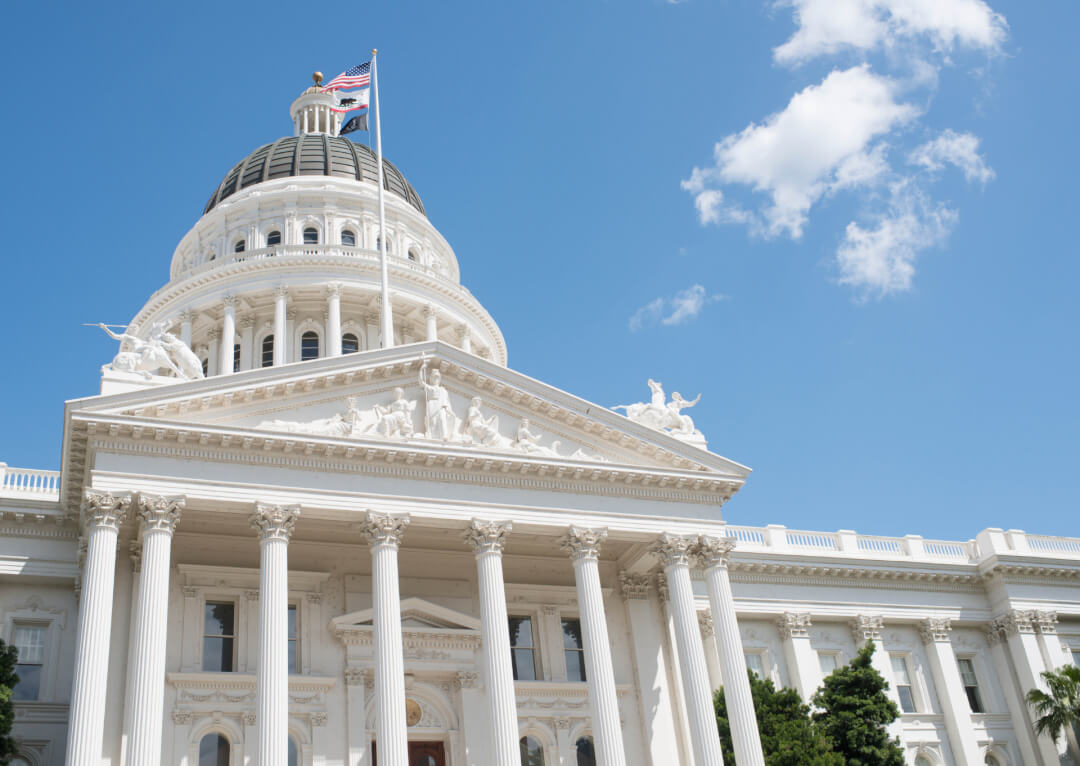3 min read
California’s New DOB Restrictions: Breaking Down What It Means For Background Checks
![]() AccuSourceHR, Inc.
:
Mar 14, 2022 5:50:06 PM
AccuSourceHR, Inc.
:
Mar 14, 2022 5:50:06 PM

If you’re an employer in California, you’ve probably heard the buzz about new background check restrictions involving an applicant’s date of birth. Due to a recent court ruling, date of birth, driver’s license numbers, and other factors can no longer be used to identify an individual during a background check. This adds even more limitations to California’s already highly restricted background check regulations.
While this is going to make it a lot more difficult to conduct accurate criminal screenings, there are other means to vouch for an applicant’s character. Below, we’ll provide a breakdown of the new restrictions and how to find alternative ways to ensure you’re hiring safe, qualified candidates.
California’s New DOB Restrictions: The Ruling
In July of 2021, the California Court of Appeal ruled that date of birth (DOB) and driver’s license numbers cannot be used to identify individuals in electronic searches of criminal index records. The ruling expanded on existing restrictions on how employers can lawfully conduct a background check.
In addition to DOB and driver’s license numbers, the following information is also excluded from court records:
- Social security numbers
- Financial information
- Arrest warrant information
- Search warrant information
- Victim information
- Witness information
- Ethnicity
- Age
- Gender
- Government-issued identification cards
California already has more stipulations in place protecting applicants than most other states. In addition to this new ruling, employers with five or more employees cannot inquire or consider the conviction history of an applicant until making a conditional offer of employment. The Fair Chance Act – which went into effect in 2018 – prevents employers from considering information related to prior arrests and convictions if that information has been sealed or expunged.
What Does California’s New DOB Restrictions Mean For Me?
This will make conducting criminal background checks a lot harder and slower than before – but not impossible.
The public access terminal has DOB removed. So, when you find a hit on a prospective candidate, you need to verify their identity. This typically means working with a clerk, pulling cases from storage, and taking other extra steps to ensure records are accurate.
While background checks are still possible, these new laws are causing serious delays – and you may not always be able to do as thorough a check as you would like if you’re trying to make fast hiring decisions.
When And How Can I Conduct A Background Check?
While you can still order a background check in California, obtaining accurate results is much more difficult now and all standard restrictions still apply. California is a fairly progressive state, so – even before the recent DOB ruling – its background check restrictions were historically protective of former offenders.
You must adhere to federal laws outlined by the Fair Credit Reporting Act (FCRA), which stipulates applicants have a right to:
- Obtain a copy of their background check report
- Receive written notice that a background check report is required
- Receive notice if you intend to use an applicant’s neighbors, friends, or associates as character references
- Receive notice if any information contained in a background check is used to make an adverse hiring decision
California also has state-specific restrictions that go beyond federal law. Background checks can only report criminal convictions and open cases, and criminal background checks cannot report any offenses older than 7 years. Under FCRA, jobs that pay more than $75,000 are not subject to the 7-year rule. However, in California, the rule applies regardless of salary.
Are There Other Ways To Vouch For A Candidate’s Character?
Employers have long looked for ways to circumvent California’s strict regulations. Former California Governor Ronald Reagan signed the California Public Records Act (CPRA) into law in 1968. Under the CPRA, criminal records are considered public records and can be accessed online or by making a request to the proper agencies.
Theoretically, you can search online court records in areas where a candidate has resided or send a CPRA request to relevant parties. However, new restrictions regarding identifying information mean you’d run into the same issues you would with a regular background check – you’d have to take extra steps to verify a candidate’s identity. You could also land yourself in legal trouble for attempting to circumvent background check laws.
Old-fashioned reference checks may become more important. You can ask candidates for lists of professional and personal references that you can contact with their permission. While this can certainly help you judge a candidate’s character, keep in mind that individuals are likely only listing references who will say positive things. A reference check is a good start, but it can only get you so far.
You may need to look at softer factors to determine whether a candidate is a good fit. A social media screening – which takes a deep dive into a candidate’s publicly available social media profiles – may reveal information left off a routine background check. In the future, these kinds of screenings will likely become more important.
Something as simple as Googling a candidate’s name may also reveal something a background may miss. You could potentially uncover news stories about a previous conviction with pictures to prove the individual-in-question is indeed your prospective hire.
California’s New DOB Restrictions: The Bottom Line
While this news slows down criminal background checks, there are creative ways to ensure you’re hiring trustworthy candidates. Court rulings also sometimes change, so these restrictions may be lifted or adjusted in the coming year. Keep a close eye on the news for updates.
Need help with background checks? At AccuSourceHR™ Workforce Solutions, we combine automation with a human touch when and where needed to provide fast background checks that don’t skimp on accuracy. Reach out today to learn more.
